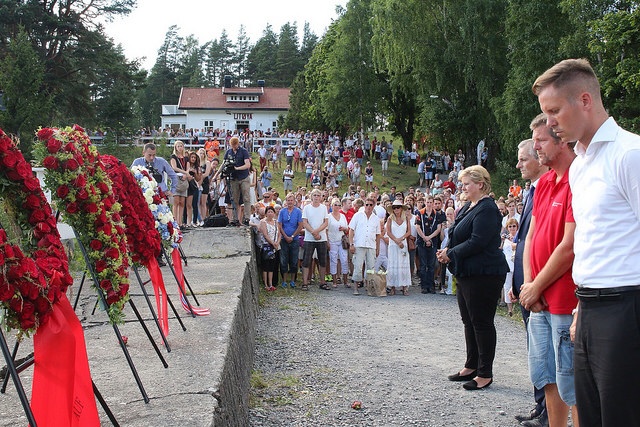The Office of Criminal Injuries Compensation (Kontoret for voldsoffererstatning, KFV) feared a proposed NOK 25 million (USD 4 million) cut to its budget would drastically reduce the support it could offer victims of violence. KFV’s funding was increased in response to its large workload following the July 22, 2011 attacks, and the office said the number of cases only continued to increase three years on.

KFV is a state agency, established to provide compensation to people who’ve suffered injuries as a result of criminal violence. The office received an extra NOK 25 million allocation in 2013 and 2014, reported newspaper Dagsavisen on Wednesday. The Ministry of Justice now plans to reduce its assets by 69 percent between 2014 and 2016, in the form of a NOK 15 million funding cut in 2015 and a further NOK 10 million cut in 2016. It would put KFV’s budget back to its pre-July 22 level.
The office said it had received 38 percent more cases between 2010 and 2014. It wrote to the ministry, saying a rollback to the 2011 budget would severely hinder the level of support and compensation it could offer victims. The number of case workers would more than halve from 33 full time positions to 15, and processing times would blow out.
“We are aware that we have received an additional grant that would be phased out, but we had hoped it would be replaced with permanently strengthened support,” said director Marit Zahl Jonassen. “Before the terror attack, there was a realization that we were under-funded, and we were promised a reinforcement from the administration in the Justice Ministry.”
She said that in 2011, the office had a serious backlog of 4,000 unfinished cases hanging over from the previous year, as well as the new cases that were coming in. When KFV’s budget was doubled after July 22, it managed to get through more of the older matters even with the sharp increase in its workload after the terror attacks.
“Today we’ve managed to reduce the processing time to three months,” Jonassen said. “If we have to cut the number of case workers by 50 percent, it will take much longer time before victims of violence will get their cases completed. The politicians make the decisions and we adhere to that, but we want to make them aware of the consequences.”
More cases to come
KFV has processed 1,238 cases concerning survivors and relatives of the July 22 attacks. While many of the cases were closed, the office anticipated many ongoing compensation matters. Those involving permanent and serious injuries would take several years, as the level of compensation for loss of income could not be quickly and easily determined.
In addition, the government lifted the statute of limitations for murder, rape and sexual assault cases, meaning many more victims could be eligible for criminal injuries compensation.
The chair of the Parliamentary Justice Committee, Labour (Arbeiderpartiet, Ap) politician Hadia Tajik said it was well-known that psychological damage could take time to present itself, so it was “strange” the Conservative/Progress Party (Høyre/Fremskrittspartiet, Frp) coalition would make such drastic cuts only three years after July 22.
“It partly concerns cases that still have not come to the surface, and it partly concerns the office’s ability to do an important job facing many violence victims,” Tajik said. “The situation in 2010, before they received the extra funding, consisted of long processing times and many arrears. We must discuss the dignity victims of violence receive when the case processing time is long.”
“I’m concerned that the Office of Criminal Injuries Compensation has a sufficient framework in which to operate, and I will continuously follow and assess the development in the case load and processing time,” Justice Minister Anders Anundsen wrote in an email to Dagsavisen. “I will bring these assessments with me when the state budget proposals are presented in coming years.”
newsinenglish.no/Emily Woodgate

